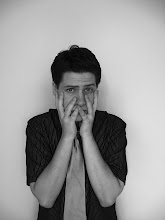Required Reading: Philosophy of Perception; Epistemology
While denying sense data is impractical, it would be equally impractical to deny the existence of a potential object or even a fantastic object when there is evidence to support it or when there is no evidence to the contrary. This is the basis of what I will call healthy scepticism.
Healthy scepticism is to be distinguished from unhealthy scepticism by the fact that it does not deny what is readily apparent. In order to illustrate unhealthy scepticism, I refer to a legend of an early sceptic, who upon adopting scepticism of even what is readily apparent was killed by a cart when he walked in front of it, disbelieving its existence. Conversely, healthy scepticism operates upon the assumption (but not the certainty) that what is readily apparent is evidence to its own existence by its being apparent in the first place. I say that it does not operate on a certainty because, while it is impractical to disbelieve what is readily apparent, it is equally impractical to believe that what is readily apparent is objective truth (more on that another time).
Likewise, it is illogical to believe in what is not readily apparent, or in what is apparently not. The former - what is not readily apparent - is merely name given to the potential for either existence or non-existence, while the latter - the apparently not - is made readily apparent by the absence of evidence and cannot be verified by any available means.
What is not readily apparent cannot be used as substantive evidence for the existence or potential existence of anything. Only what is within the immediate reach of human experience is readily apparent, and effective in evidencing the existence of a thing.
In cases where something is not readily apparent, it is best to reserve judgment (as I may yet argue is best in all cases), however it is not within human capacity to continue to be active in life without behaving as though what is apparent is real, and what is not immediately apparent could be real – regardless of whether it is believed true. That said, one should neither believe that the apparently not is categorically true or false either. Even so, reaction or no reaction to a lack of stimuli is not required for active life.
Healthy scepticism is to be distinguished from unhealthy scepticism by the fact that it does not deny what is readily apparent. In order to illustrate unhealthy scepticism, I refer to a legend of an early sceptic, who upon adopting scepticism of even what is readily apparent was killed by a cart when he walked in front of it, disbelieving its existence. Conversely, healthy scepticism operates upon the assumption (but not the certainty) that what is readily apparent is evidence to its own existence by its being apparent in the first place. I say that it does not operate on a certainty because, while it is impractical to disbelieve what is readily apparent, it is equally impractical to believe that what is readily apparent is objective truth (more on that another time).
Likewise, it is illogical to believe in what is not readily apparent, or in what is apparently not. The former - what is not readily apparent - is merely name given to the potential for either existence or non-existence, while the latter - the apparently not - is made readily apparent by the absence of evidence and cannot be verified by any available means.
What is not readily apparent cannot be used as substantive evidence for the existence or potential existence of anything. Only what is within the immediate reach of human experience is readily apparent, and effective in evidencing the existence of a thing.
In cases where something is not readily apparent, it is best to reserve judgment (as I may yet argue is best in all cases), however it is not within human capacity to continue to be active in life without behaving as though what is apparent is real, and what is not immediately apparent could be real – regardless of whether it is believed true. That said, one should neither believe that the apparently not is categorically true or false either. Even so, reaction or no reaction to a lack of stimuli is not required for active life.
Next Week: We'll see...

No comments:
Post a Comment